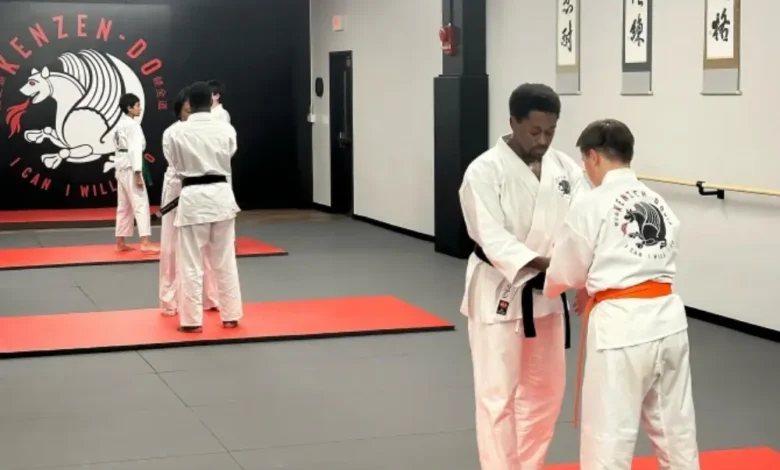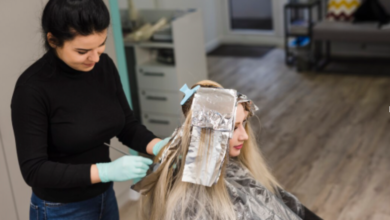Karate Personal Training – Master Martial Arts with a Customized Approach

Karate is far more than a form of self-defense—it is a path to discipline, mental clarity, physical fitness, and confidence. While group classes can be a great way to learn in a community setting, they may not always provide the individual attention needed for rapid improvement. This is where karate personal training comes in.
Personal training in karate gives you one-on-one guidance with a certified instructor, allowing every session to be tailored to your personal goals, abilities, and pace. Whether you are a complete beginner, an experienced martial artist preparing for a competition, or simply looking for a fun way to stay fit, karate personal training can help you reach your full potential.
In this guide, we’ll explore the benefits of personal karate training, what to expect during sessions, training techniques, and how to choose the right instructor.
What Is Karate Personal Training?
Karate personal training is a specialized one-on-one martial arts coaching program. Instead of following a fixed class structure, the lessons are entirely customized to your needs.
A personal karate trainer can focus solely on your weaknesses, help refine your strengths, and design a plan that moves at your pace. This makes it ideal for people with busy schedules, unique learning styles, or specific goals—such as preparing for belt tests, mastering kata, improving sparring, or enhancing self-defense abilities.
Benefits of Karate Personal Training
Personalized karate coaching offers several unique advantages that group classes cannot always provide.
Tailored Training Plans
Your training plan is built around your goals, whether you want to improve certain techniques, increase endurance, or learn practical self-defense.
Faster Progress
Because you receive constant feedback, mistakes are corrected instantly, and every drill is optimized for your development, you tend to improve much faster compared to group learning.
Flexible Scheduling
You are not tied to a fixed timetable. You can arrange training sessions at times that fit your work, school, or family commitments.
Increased Confidence
Private coaching allows you to practice in a comfortable setting, free from the pressure of keeping up with a group. This builds confidence before you step into competitions or group classes.
Specific Skill Development
You can focus on particular skills—such as perfecting your front kick, working on kata sequences, or sharpening sparring strategies—without distractions.
Higher Motivation
Your trainer tracks your progress, keeps you accountable, and provides the motivation to push through challenges.
See also: Tennis Court Cleaning in Brisbane: Protect Your Court and Play with Confidence
Key Components of Karate Personal Training
A well-structured karate personal training program typically includes the following elements:
Warm-Up and Mobility Work
Every session begins with stretching and mobility exercises to prevent injury and prepare your body for training.
Technique Refinement
You’ll work closely with your instructor to master strikes, kicks, blocks, and stances with precision and efficiency.
Kata Practice
Kata are pre-arranged sequences of moves that teach proper form, timing, and balance. In personal training, these are broken down into fine details for better understanding.
Sparring (Kumite)
If competition or self-defense is your goal, sparring practice will be a regular part of your training. You’ll learn timing, strategy, and adaptability.
Strength and Conditioning
Karate personal training often includes exercises to improve endurance, agility, and core strength—essential qualities for martial arts.
Self-Defense Applications
Your trainer may incorporate real-life defense drills to prepare you for unexpected situations.
Cool Down and Recovery
Sessions end with stretches and breathing techniques to aid recovery and promote relaxation.
Types of Karate Personal Training
Personal karate lessons can be adapted to different needs and experience levels:
- Beginner Training – Covers stances, basic strikes, movement, and karate etiquette.
- Advanced Training – Focuses on complex kata, sparring strategies, and competitive readiness.
- Self-Defense Training – Specializes in real-world defensive techniques.
- Fitness-Focused Karate – Uses karate movements for weight loss, strength building, and flexibility.
- Children’s Personal Karate – Designed to improve focus, discipline, and confidence in young learners.
How Karate Personal Training Differs from Group Classes
In a group setting, the pace is dictated by the class average, which may be too fast or slow for your needs. Personal training allows the session to move entirely at your speed. You also receive undivided attention, meaning your form, timing, and accuracy are closely monitored.
Group classes may not allow much time to work on your specific weaknesses, but in personal training, the instructor can dedicate entire sessions to them. Additionally, scheduling is flexible, unlike group classes that run at fixed times.
What to Expect in a Karate Personal Training Session
A typical karate personal training session lasts between 45 and 60 minutes and may include:
- Warm-Up (5–10 minutes) – Light jogging, skipping, joint rotations, and dynamic stretching.
- Technical Drills (15–20 minutes) – Practicing punches, kicks, and blocks.
- Kata Training (10–15 minutes) – Learning and refining forms.
- Sparring or Self-Defense Practice (10–15 minutes) – Applied techniques for combat readiness.
- Cool Down (5–10 minutes) – Static stretching and breathing exercises.
Equipment Needed for Karate Personal Training
Most sessions require minimal gear:
- Karate gi (uniform)
- Belt corresponding to your rank
- Protective gloves and shin guards (for sparring)
- Mouthguard for safety during contact drills
- Water bottle to stay hydrated
Tips for Getting the Most Out of Karate Personal Training
- Define Your Goals – Be clear about what you want to achieve.
- Stay Consistent – Regular training yields the best results.
- Practice at Home – Reinforce what you learn between sessions.
- Communicate with Your Trainer – Ask questions and seek feedback.
- Track Your Progress – Keep a training log to monitor improvements.
The Role of a Karate Personal Trainer
A good karate trainer is more than just a coach—they are a mentor who guides you in technique, discipline, and mindset. They adjust their teaching style to your personality, skill level, and learning speed, ensuring you make steady progress without unnecessary frustration.
Who Should Consider Karate Personal Training?
Karate personal training is suitable for:
- Beginners who want a comfortable introduction to martial arts.
- Athletes preparing for competition.
- Busy professionals who need flexible training times.
- Parents who want focused instruction for their children.
- Individuals seeking practical self-defense skills.
How to Choose the Right Karate Personal Trainer
When selecting a personal karate coach, look for:
- Proper certification and black belt rank.
- Proven teaching experience with both beginners and advanced students.
- Positive reviews from past students.
- A teaching style that motivates you.
- Willingness to tailor sessions to your goals.
Cost of Karate Personal Training
The cost depends on the instructor’s qualifications, location, and session length. Many trainers offer discounts for purchasing multiple sessions in advance. Investing in personal training can save time in the long run by helping you progress more efficiently.
Common Myths About Karate Personal Training
- Myth: You have to be in great shape to start karate.
Reality: Karate training builds fitness gradually, regardless of your starting level. - Myth: Karate is only for kids.
Reality: Adults of all ages can benefit from karate for fitness, confidence, and self-defense. - Myth: One-on-one lessons are only for professionals.
Reality: Beginners can progress faster with personal training than in group settings.
Mental Benefits of Karate Personal Training
Karate training strengthens not only your body but also your mind. Personal coaching helps you:
- Develop self-discipline through consistent practice.
- Improve focus and concentration.
- Reduce stress through physical activity and controlled breathing.
- Build self-confidence by mastering new skills.
Final Thoughts
Karate personal training offers an unmatched level of focus and customization for anyone serious about improving their martial arts abilities. With one-on-one instruction, you can set your own pace, concentrate on your unique goals, and gain skills that will serve you for a lifetime.
Whether you’re seeking self-defense mastery, improved fitness, or a path to personal growth, investing in karate personal training can be one of the most rewarding decisions you make.




